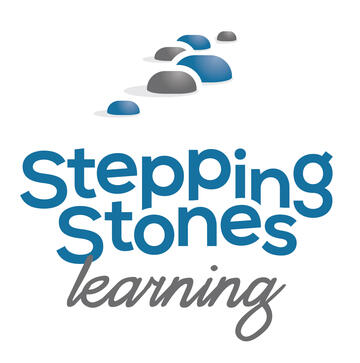
Developing confidence in learning
Educational therapy for children, teens, and adults struggling with reading and math skills
"Learning is not the product of teaching. Learning is the product of the activity of learners"
~ John Holt ~
Sharon Shantz
Educational and Dyslexia Therapist

My StoryI never wanted to be a teacher. My dad, who was a college professor, told me not to become a teacher. “You’re good at math, Sharon. Why don’t you become an accountant?” he suggested - and that's the direction I headed in. So, why do I now spend my energy helping students with learning challenges?My husband and I had prayerfully agreed that I would homeschool our children. So much for not becoming a teacher! God soon gave us five children, whom I homeschooled over the course of fifteen years. During that time, I discovered the joy of watching my children learn. I especially enjoyed the moments when things “clicked” when they were learning to read or grappling with a new concept in math. I relished the challenge of finding the best way to teach each child and spent many hours in searching for the best resources for each one. Sometimes, things did not “click,” leading me to look beyond basic teaching methods. I investigated local name-brand learning centres, but they were not specifically trained in the difficulties we faced. Specialized full-day programs were too expensive. I also knew many children in the public-school system who had fallen through the cracks by not receiving the individual attention they needed. We did not see that as a solution.In my search, I discovered NILD® Educational Therapy. It offered hope!I became a therapist to help my own children and have continued developing professionally, including obtaining a Masters of Education, in order to help others. It’s my joy to see my students overcome their challenges. For example, I’ve watched an 8th grade girl, once slumped at the blackboard, insecure and embarrassed by her inabilities, develop into a confident young woman, certain of her gifts and unafraid to read in front of others. I’ve seen the light of understanding switch on for numerous students as they understood a math concept for the first time. I’ve observed, in the faces of my students, the joy of learning how to learn. My passion is to see students become confident, competent learners.What I do
I am both an Educational Therapist and a Certified Structured Literacy Specialist (C-SLDS). Some students require help in a number of areas of learning, so they require educational therapy. Others thrive in most aspects of learning, but struggle with reading. These students might only require dyslexia therapy.I offer a free consultation to help you determine the course of action best designed to meet your student's needs. If an assessment has already been obtained, I can assist with understanding the assessment. My goal is to help your student learn how to learn.
What is Dyslexia?
In 2025, the International Dyslexia Association updated the definition of Dyslexia as follows:“Dyslexia is a specific learning disability characterized by difficulties in word reading and/or spelling that involve accuracy, speed, or both and vary depending on the orthography. These difficulties occur along a continuum of severity and persist even with instruction that is effective for the individual’s peers. The causes of dyslexia are complex and involve combinations of genetic, neurobiological, and environmental influences that interact throughout development. Underlying difficulties with phonological and morphological processing are common but not universal, and early oral language weaknesses often foreshadow literacy challenges. Secondary consequences include reading comprehension problems and reduced reading and writing experience that can impede growth in language, knowledge, written expression, and overall academic achievement. Psychological well-being and employment opportunities also may be affected. Although identification and targeted instruction are important at any age, language and literacy support before and during the early years of education is particularly effective.”What does this mean?A person with dyslexia is no more or less intelligent than a person without dyslexia. Their brains are wired differently than other people, however, so they usually need a different approach to reading instruction. If these students do not receive the correct kind of help, they tend to avoid reading, thus compounding the problem. They read fewer words than their peers, become familiar with less vocabulary and so have an even harder time keeping up with reading required of them. It becomes a downward spiral.The type of reading instruction these students require is actually beneficial for all struggling readers.
Dyslexia Therapy
- Structured Literacy Intervention
The type of reading instruction recommended by reading research is known as structured literacy intervention. This instruction includes phonology - the sound structure of spoken words; sound-symbol association - the connection between letters and sounds; syllable instruction; morphology - the study of word formation; syntax - the way words are structured to make sentences; and semantics - the meaning of words.
I include each of these elements in dyslexia therapy while adapting instruction to each student's individual needs.
Educational Therapy
Students in educational therapy with Sharon receive two sessions of intensive educational therapy per week. This is usually in an individual setting, but occasionally a small group setting is available. These sessions include a variety of techniques designed to address students’ specific areas of difficulty and to improve their overall ability to think, reason and process information. Techniques emphasize basic skill areas such as reading, writing, spelling and math, applying reasoning skills within each area.Educational therapy offers a unique and valuable approach to helping children overcome learning challenges and reach their full potential.Why might you choose educational therapy?
1. Addresses the Root Causes of Learning Difficulties:
• Educational therapy goes beyond simply tutoring or helping with homework. It delves into understanding how a child learns and identifies the underlying cognitive processes that might be hindering their progress.
• It aims to strengthen foundational learning skills, such as attention, memory, processing speed, and executive functions, rather than only focusing on academic content.2. Provides a Personalized and Individualized Approach:
• Educational therapists use thorough assessments to understand a child's unique learning profile, including their strengths and weaknesses.
• Based on assessment, educational therapists develop tailored intervention plans and strategies that cater to the child's specific learning style and needs. This one-on-one approach ensures that the child receives the exact support they require.3. Remediates Learning Difficulties and Disabilities:
• Educational therapy is effective in addressing a wide range of learning disabilities and difficulties, including dyslexia, dysgraphia, dyscalculia, ADHD, and language processing disorders.
• It helps children develop the necessary skills and strategies to compensate for or overcome these challenges.4. Builds Confidence and Self-Esteem:
• Children who struggle with learning often experience frustration, discouragement, and low self-esteem.
• Educational therapy provides a supportive and encouraging environment where children can experience success and progress at their own pace. As they develop new skills and witness their growth, their confidence and self-esteem improve significantly
Students complete their programs when they become independent and successful in the regular classroom. This decision is based upon recommendations from the educational therapist, parents and classroom teachers and usually takes a minimum of three years.Strategies learned in educational therapy enable students to learn how to learn. This is a powerful key to their future success.Learning disabilities can be addressed whenever they are identified, not just in childhood. Educational therapy techniques are effective regardless of age and can be adapted to all levels of functioning.
My Qualifications
Masters of Education in Exceptional Student Education – Southeastern University
Professionally Certified Educational Therapist (PCET) – National Institute for Learning Development (NILD) Canada
Certified Structured Literacy/Dyslexia Specialist (C-SLDS)– International Dyslexia Association
Testimonials
Our daughters eagerly attended Educational Therapy sessions with Sharon. Sharon is kind, patient and encouraging. She is knowledgeable, wise and skilled in knowing how to develop an individualized plan for each child's needs. The way Sharon teaches enabled our daughters to learn and develop in very significant ways.
Our daughters struggled in reading, writing, math, comprehension and processing. Sharon was able to challenge and encourage our daughters to grow and move forward in each of these areas and provide them with the tools to be successful.
The Educational Therapy sessions are a significant commitment of time, homework and finances, however well-worth every moment in order to have the one-on-one attention given to your child so that they can learn, develop and grow to their fullest potential.
Sharon helped our daughters to blossom and to become successful in life. We have noticed a significant difference in our daughter's lives since meeting with Sharon.
We highly recommend Sharon Shantz as Educational therapist.D. Martin
For More Information
Stepping Stones Learning
is operated as part of Shantz Professional Services Inc.
Registered Office:
22 King St. S. Suite 300,
Waterloo ON N2L 6H7
Canada
Note: All therapy sessions take place at my home studio near St.Clements, Ontario or online via ZoomContact information:
e-mail: sharon@steppingstoneslearning.caPhone: 519-503-1822
Fax: 226-887-8681
Contact for more information or a free consultation
Additional Resources
-an amazing resource for individuals with learning differences and their families
-an excellent place to find out about the most recent dyslexia topics and resources